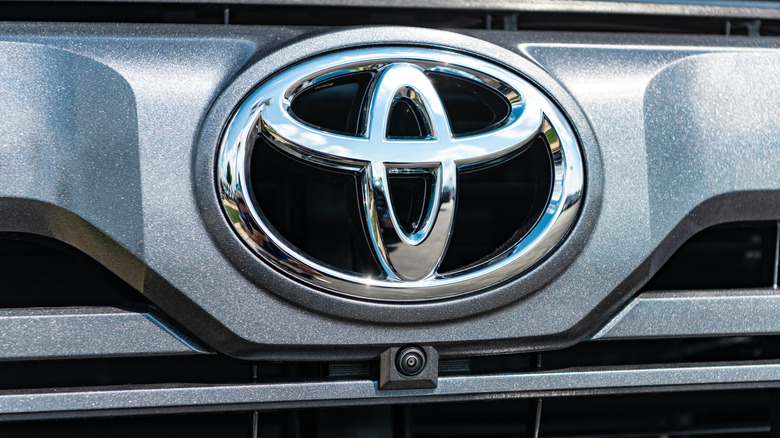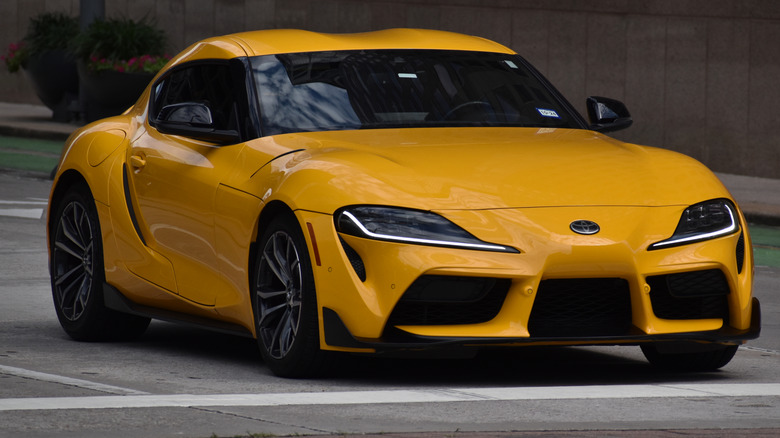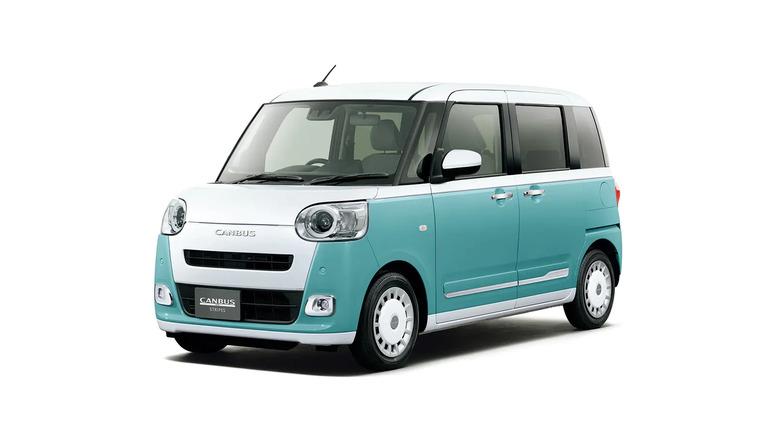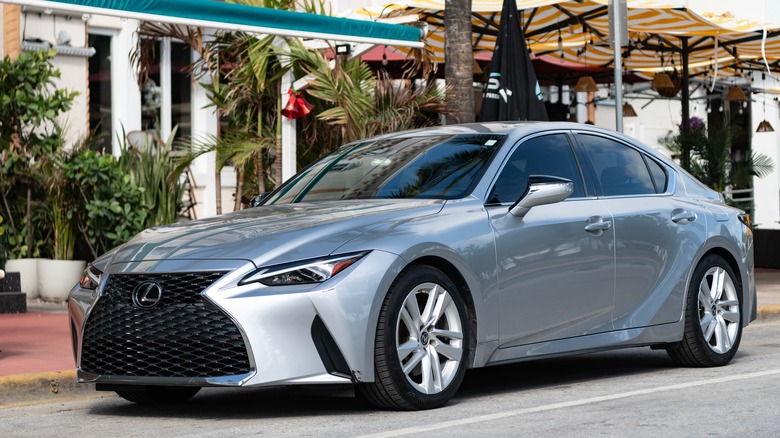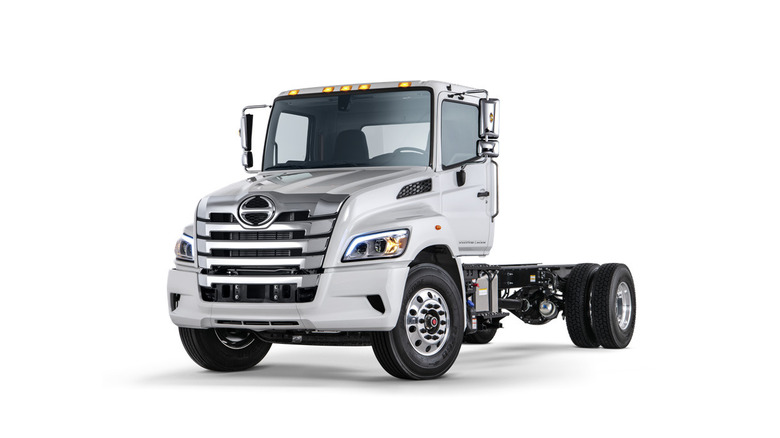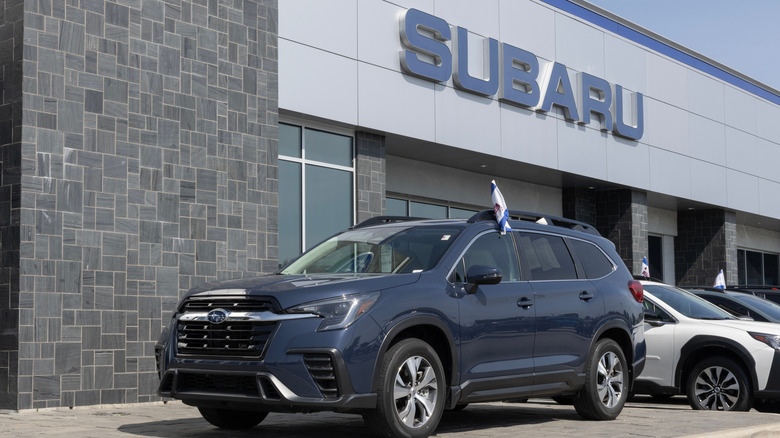Every Car Brand Toyota Owns In 2025
Toyota is probably the most recognized car brand in the world right now. In the first half of 2025, the Corolla was the world's best-selling car, followed by the RAV4, demonstrating the brand's global dominance. Meanwhile, the Land Cruiser is the de facto vehicle for remote places, showcasing Toyota's commitment to producing reliable cars.
However, not many people know that Toyota isn't only responsible for the cars it builds. In fact, the Toyota Motor Corporation (TMC) is part of a conglomerate called the Toyota Group, which spans various industries. TMC itself is also huge: It owns quite a few other car brands as well as a significant stake in others. It's also currently Japan's largest company by market capitalization.
But which car brands are owned by Toyota? You probably recognize at least one, but in this piece, we'll take a closer look at some brands that you may not even know exist. We'll focus on car brands, but also give you details on world-leading suppliers that enable Toyota's global reach. Let's peel back the layers of Toyota.
Toyota
Shocker, we know. Still, Toyota sells most cars under its own brand, topping the sales charts in many countries. In 2025, the RAV4 topped the list as the best-selling non-truck vehicle in the U.S. That's despite the fact that Toyota recently introduced a completely redesigned, hybrid-only 2026 RAV4, which will probably boost sales even further. Oh, and the Toyota Camry is third on the list (excluding trucks), even though sedans are slowly going extinct.
Let's also not forget the special GR Toyota performance variants. While other automakers are killing sports car projects, Toyota is committed to giving us fun cars. Whether it's a rally-inspired AWD hot hatch, a cheap and light RWD sports car, or a turbocharged inline-6 performance beast, Toyota has you covered. Toyota's SUVs and trucks are also hugely popular in the U.S. The Tacoma has been among the best-selling mid-size pickup trucks, and expectations for the brand-new 4Runner are also high. The Japanese automaker also brought back the Land Cruiser in 2024, and the Grand Highlander has been a sales hit.
Like all companies, though, Toyota faces some challenges ahead. The brand has been famously slow to adopt battery-electric vehicles, though this ultimately proved to be a wise move because EV sales recently took a downturn. On top of this is the fact that Chinese automakers, as well as Hyundai and Kia, currently have more advanced 800V electric systems. The oncoming era of software-defined vehicles could also be a hurdle, with startups like Tesla and Rivian leading the game. However, the recently established "Woven by Toyota" subsidiary has helped close the gap with the Arene software platform, which is available in the 2026 RAV4.
Daihatsu
Toyota made Daihatsu its wholly-owned subsidiary in 2016, but had owned a 51.2% stake in the company since 1998. The idea was to have a unified strategy for the small car segment, where Daihatsu's expertise lies. City cars aren't as profitable as SUVs or sedans, and many automakers have abandoned their small models. However, keeping Daihatsu under its umbrella has allowed Toyota to continue producing small, fuel-efficient vehicles, primarily for the Asian market.
For instance, the latest Yaris Cross for Southeast Asia utilizes the DNGA (Daihatsu New Global Architecture) platform. Meanwhile, the European model uses the TNGA (Toyota New Global Architecture) platform. However, in 2023, news came out that Daihatsu-based vehicles, including Toyotas, were rigged to cheat on crash tests. This prompted a reaction from TMC, with the company stopping the development of many Daihatsu compact cars. In other words, Daihatsu's development and management teams will be transferred to Toyota. So, what does that mean for Daihatsu's future? The brand will probably continue to exist, but upcoming models will be based on Toyota's platforms.
It's a shame, because Daihatsu developed some cool cars for Toyota, like the quirky Copen GR Sport roadster. The 1987-1993 Charade GTti also showed that three-cylinder small hot hatches were possible long before the GR Yaris. Boasting a tiny 1.0-liter turbocharged engine with a whopping 104 hp, it reached 60 in just 8 seconds. Not to mention, Daihatsu has been around since 1907, and produced its first motorcycle engine and three-wheel car in 1930. That's six years earlier than Toyota's first car, the Model AA, launched under the Toyoda brand.
Lexus
Lexus was established as Toyota's luxury brand in 1989 with two models — the LS 400 and ES 250. However, it was the LS 400 that garnered more attention. The V8-powered luxury sedan was an engineering gem, beating the Germans in most categories. The LS 400 was quieter, better built, and half the cost of an S-Class or 7 Series. Most importantly, it was significantly more reliable.
Blending luxury and reliability has been a problem for the Germans for quite a long time. In J.D. Power's 2025 U.S. Vehicle Dependability Study, Mercedes-Benz and Audi ranked well below the study average. BMW was ninth. Lexus? First. And this has been the case ever since the brand arrived on the automotive stage. Crucially, this has allowed the brand to attract quite a lot of buyers — the RX and NX held the top two spots among the best-selling luxury cars in America in 2025. But it's not just dependability — Lexus also pushed the performance envelope with the V10-powered LFA, one of the most iconic supercars ever made. Soon, the brand is again poised to wow the world with the LFR, which is rumored to feature a twin-turbo V8 hybrid powertrain.
Still, Lexus' days as an internal combustion brand are numbered, as it plans to go all-electric in the U.S. by 2030 and globally by 2035. Currently, Lexus sells one EV in America — the RZ — which has been significantly reworked for the 2026 model year. The brand-new 2026 Lexus ES will also be offered with two all-electric drivetrains, and a three-row electric SUV is in development as well.
Hino Motors
Hino Motors is another big acquisition for Toyota Group, as it's one of Japan's largest manufacturers of commercial trucks, ranking 13th in the world in terms of revenue. Toyota acquired a 50.1% majority stake in Hino in 2001. However, unlike other car brands on this list, Hino Motors is a subsidiary of Toyota Group, not Toyota Motor Corporation. The manufacturer still operates under the same umbrella, though, as TMC is also a part of Toyota Group, but it's an important distinction. Starting next year, Hino Motors will be part of a new alliance with Daimler-owned Mitsubishi Fuso. Daimler Truck and Toyota will each own 25% of the new company.
Although not very popular stateside, Hino trucks are sold in North America. Hino trucks are also built at two sites in the U.S. and one in Canada. For the American market, Hino sells medium-duty trucks; the smaller L Series is equipped with a Cummins B6 diesel, while the XL Series comes with a Cummins L9 diesel engine. Meanwhile, in other markets, the Hino 700 heavy-duty truck with a capacity of 22 tons is also available, featuring the brand's own 12.9-liter six-cylinder diesel with up to 473 hp. Interestingly, the company also competes at the Dakar Rally under the Hino Team Sugawara racing team.
Curiously, in the past, Hino Motors also produced passenger cars. In 1953, Hino produced the Renault 4CV for the Japanese market, and in 1961 launched its first in-house passenger car — the Contessa 900. Still, the car was almost a carbon copy of the Renault Dauphine, and it became the firm's last passenger car effort.
Other automotive brands that Toyota owns or has stakes in
Toyota isn't only associated with its in-house brands; the company also owns significant stakes in other Japanese automakers. Most notably, it has a 20% minority stake in Subaru, which gives Toyota voting rights in the company. As a result, the brands have collaborated on the Toyota GR 86 and Subaru BRZ sports cars, as well as some recent EVs, like the Toyota bZ Woodland and Subaru Trailseeker. Toyota also has a 4.94% stake in Suzuki. Still, perhaps an even bigger acquisition is the 5.1% stake in Mazda, which resulted in the establishment of the Mazda Toyota Manufacturing plant in the U.S.
Toyota has also collaborated with Subaru and Mazda on next-gen internal combustion engines designed to run on alternative fuels and in hybrid-electric form. Toyota will develop four-cylinder engines but will honor its rivals' unique configurations. Subaru will produce hybrid boxer engines, while Mazda will work on rotaries. Yup, in a way, Toyota is saving the rotary.
Aisin and Denso, two of the world's largest automotive suppliers, are also owned by Toyota Group. Aisin specializes in transmissions and, like its parent company, produces some of the most reliable models globally. The company produces regular automatics, and also CVTs for Toyota and other automakers. Meanwhile, Denso produces high-quality electronic components, like alternators, spark plugs, sensors, and ignition coils. The company also makes air-conditioning compressors, fuel pumps, filters, and engine cooling sensors. Denso's parts are also very reliable and, in many instances, more durable than Bosch's, the world's leading auto supplier.
